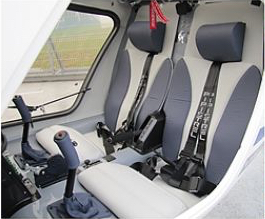Virus SW 100 HP - ULM
Virus SW's Birth - Innovation - Performance - Cabin Comfort - Instruments - Safety - Dimensions - Materials - Technical Data - Brochure
Introduction
iFly and Pipistrel introduces the high performance Virus Short Wing (SW) in the Netherlands, Belgium and Luxembourg.
Speed, efficiency and ultra-long range are signature for Pipistrel. Virus SW 80/100 cruises faster, goes much further and flies higher than the competitors, all this while burning less fuel! Imagine flying around at over 260 km/h (140 kts), easily overflying terrain higher than 4500 m (15.000 ft) and covering distances of over 1500 km (800 NM). With Virus SW 80/100 you can. All this and much more!
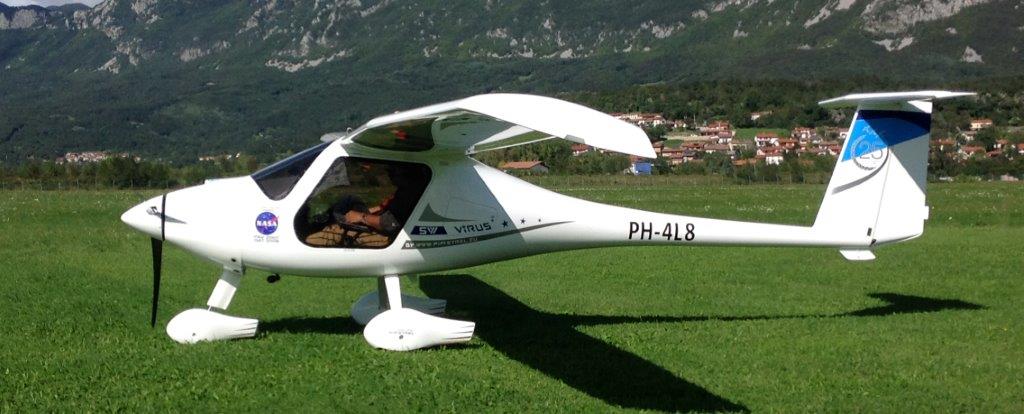
Virus SW's birth
Years ago, people said it is impossible to produce an microlight aircraft light and streamlined enough to be safe and efficient. We did it. People said it is impossible to beat the NASA Centennial Challenges. We went ahead and did what nobody did before – we won the NASA Challenges three times, also winning the Green Flight Challenge 2011 with the first ever electric powered 4-seater Taurus G4. They keep saying it is impossible to make a practical electric-powered aircraft presently. We did it already back in 2007 with the first electric two seater in the World. Clearly we see and do things differently and have a pioneering vision.

We do not imitate, we innovate!
Ten years ago we started developing, based on years of experience with the Sinus and Virus, a fast, safe, quiet and comfortable aeroplane which we tested during the NASA challenge. We did win the challenge twice! Since the victories at PAV challenge 2007 and NASA GAT centennial challenge 2008, we had a proven concept which is the best in it's class and in 2008 we introduced the Virus SW.
The Virus SW 80/100 is the most economic high speed cruiser and definitely the fastest high-wing aeroplane in its category. Made from state-of-the-art composite materials, it’s lightweight, robust and features an unprecedented useful payload of more than 300 kg (660 lbs). Virus SW 80/100 offers what no competitor is able to offer and has won hearts of people world-wide and is the best seller since its introduction.
When speed meets economy.
Innovation
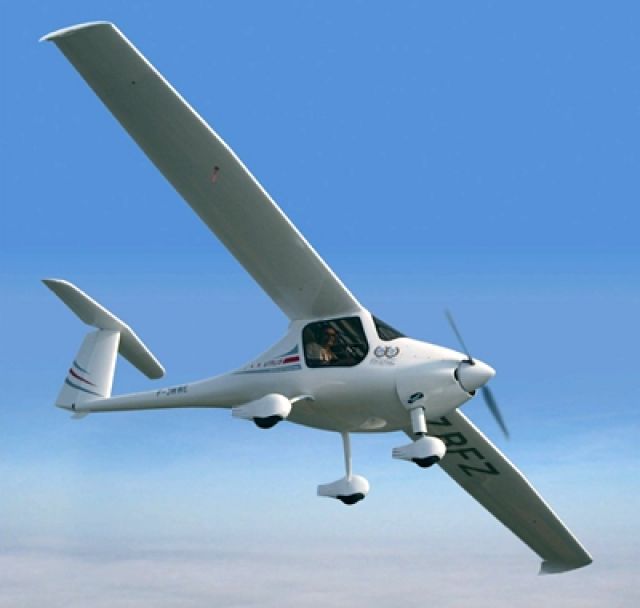
The Virus SW is designed by applying the most modern design and construction techniques, on top of 20 years of knowledge, experience and excellence in building aircraft.
The entire structure on the Virus SW is completely new from ground up. Reinforced fuselage, reinforced tail, reinforced wings, everything is modified to provide the correct strength required for higher speed safety. Pipistrel managed to produce an aircraft almost 2 times stronger than the original Virus, using advanced honeycomb techniques and other special approaches to composite building.
Thanks to its superior aerodynamic efficiency, state-of-the-art composite material structure and lowest fuel consumption figures in the category, the Virus SW 80/100 is ideal for High speed cross-country flying, surveillance missions, ab-initio-, advanced and extreme manoeuvre training, aerial photography and high-mountain operations. Did you know that the Virus SW 80/100 has the glide ratio of 17:1 and can glide further in case of emergency than most aeroplanes?
Stunning Performances
The Virus SW 80/100 is able to operate at all elevations from sea-level up to 15.000 feet, take-off and land from short runways and over obstacles thanks to unique airbrakes, is the quietest light aircraft and has one of the lowest operating costs in its category.
Speed, efficiency and ultra-long range are signature for Pipistrel. Virus SW 80/100 cruises faster, goes much further and flies higher than the competitors, all this while burning less fuel! Imagine flying around at over 260 km/h (140 kts), easily overflying terrain higher than 4500 m (15.000 ft) and covering distances of over 1500 km (800 NM). With Virus SW 80/100 you can. All this and much more!
The aircraft can be equipped by either the Rotax 912 UL2 (80 hp) or 912 ULS (100 hp) powerplants and a large variety of avionics options. The new 80 HP Virus SW 80/100 cruises at 246 km/h (133 kts), burning less than 13.6 liters per hour (3.6 gph). At 75% cruise-power-setting the 100 HP version speeds over the skies at 273 km/h (147 kts)! The ASTM-LSA version, equipped with the fixed pitch propeller cruises at 119 kts, burning 14.0 liters per hour (3.7 gph) This really speaks about the performance and economy of the new SW.
Cabin Comfort
The exclusive kevlar-reinforced safety cockpit with luxurious leather interior will keep you both comfortable and safe. You can choose your own color configurations.
Instruments
The instrument panel is made of carbon fibre with visible-structure and can accommodate a wide selection of modern avionics, including a full glass-cockpit IFR suite with dual-axis GPS-driven autopilot and electric constant-speed propeller control. The panel can be arranged according to your wishes with assistance of our skilled avionics technicians. The Virus SW 80/100 has a range in excess of 1850 km (1000 nm) and you cantake 40 kg (90 lbs) of luggage with you.
Safety
Virus SW 80/100 can be called the 300 km/h (160 kts) ultralight/microlight/LSA, but it is much more than that! With a turbulence penetration speed (green arc) of 250 km/h (135 kts) and the VNE of 302 km/h (163 kts), you can take advantage of high-speed cruise even in strong turbulence. The cockpit remains quiet and comfortable throughout the flight! The Virus SW 80/100 has the largest flight safety margins in its category and can be equipped with the total rescue system, deployable even at maximum speeds and close to the terrain.
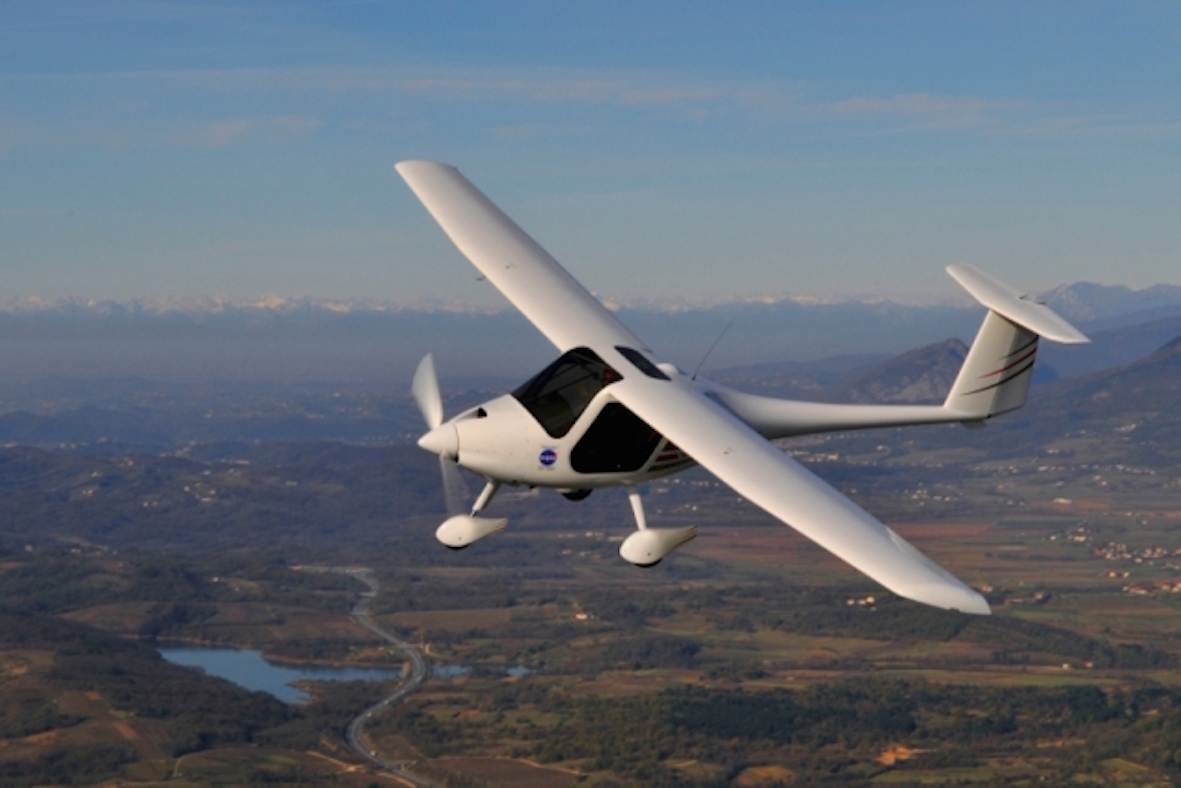
All engineering work and testing of the 10.71-meter Virus SW 80/100 was carried out at Pipistrel premises in Ajdovšcina, Slovenia under supervision of CAA of Republic of Slovenia. This separates Pipistrel from most other producers, because all design, production and testing is directly monitored by the CAA, ensuring accuracy of data. Before its introduction to the market, more than a year of ground structural and vibration tests went by without a glitch, followed by an extensive flight test programme with more than 100 hours cumulative tests.
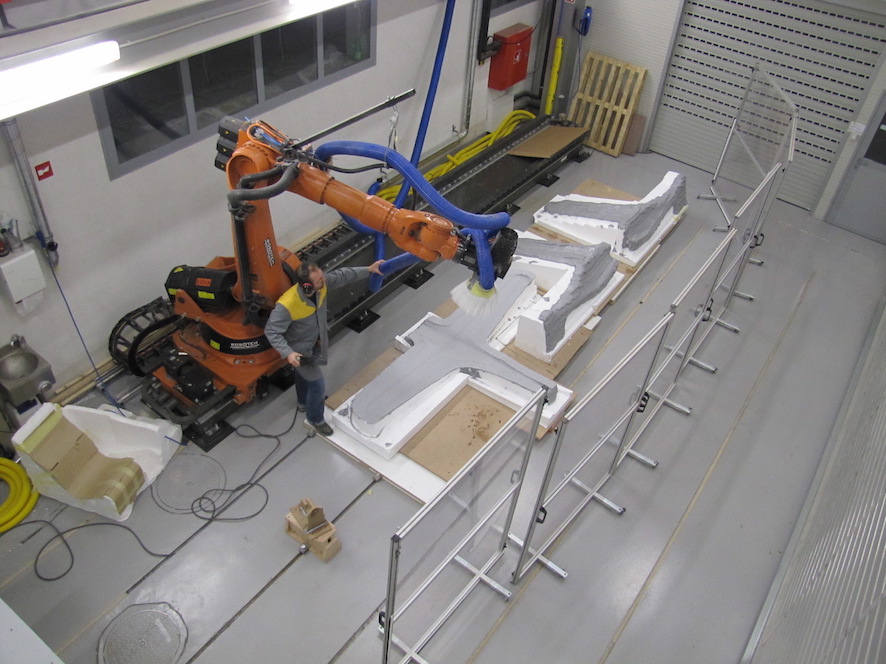
Now, more than one hundred Virus SW 80/100 aircraft are flying Worldwide, performing flawlessly in the difficult conditions of tropical Thailand, high-elevations of Ecuador and the cold wilderness of Canada as well. The Virus SW 80/100 meets all ASTM-LSA standards and is accepted as an LSA in the United States of America with a fixed pitch propeller and the MTOW of 550 kg (1210 lbs). In Europe (EASA member states) it is possible to register the Virus SW 100 under the EASA-LSA Permit-to-Fly with a MTOW of 600 kg. At 472.5 kg the Virus SW 80/100 also meets all requirements for the microlight/ultralight class in Europe – including the stall speed of 64 km/h (34 kts) thanks to the innovative flaperon system.
Materials and Technology
Pipistrel wants to clearly differentiate the Virus SW from the existing Sinus and Virus products and this is why the aircraft carries a whole new decal design. The top and bottom stripes are sterling (metallic) silver while the middle stripe is wine-red or blue. The color of the middle stripe can be matched to the color of leather seats if applicable.
Alongside the new livery each aircraft carries the NASA logo with Victory titles (in front of left side-door). Customer made stickers can be made and special custumer livery as wel.
All glass surfaces are tinted Lexan giving a sporty, yet luxurious appearance. Different Lexan window options are available. For the interior you can choose from 21 different colors of leather. High quality materials are used to give the customer years of fying pleasure.
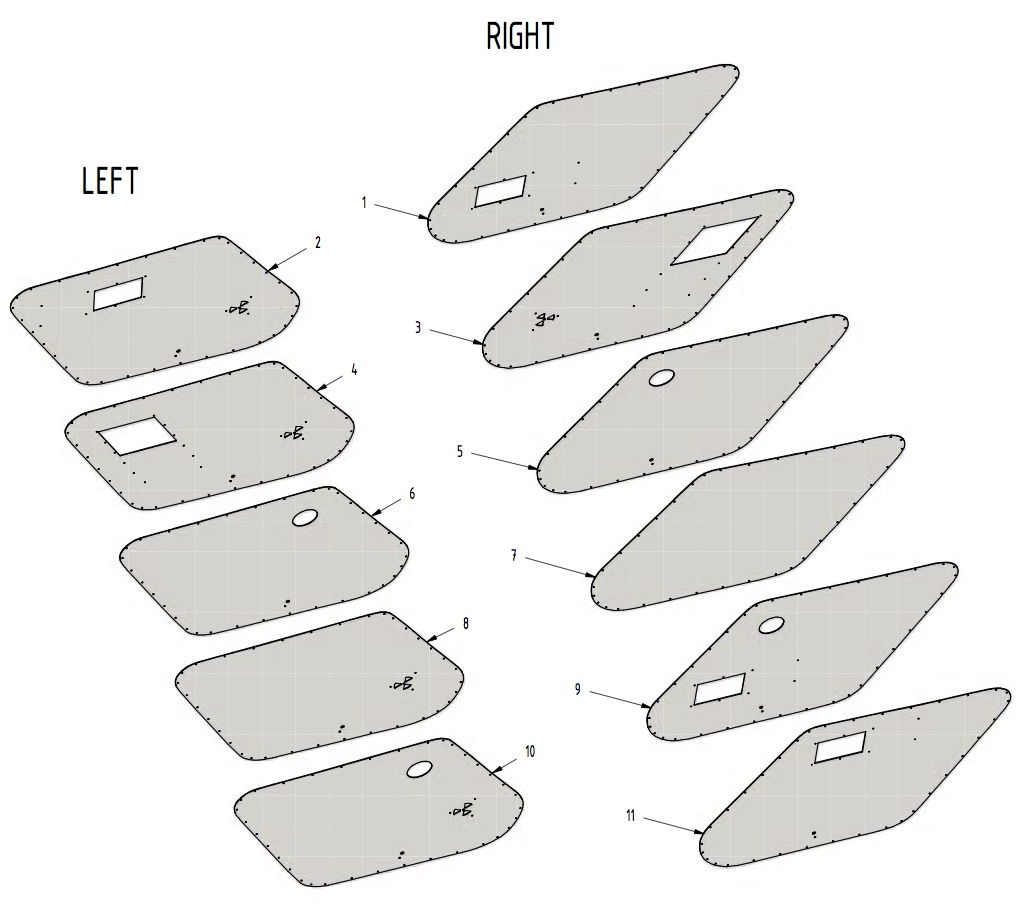
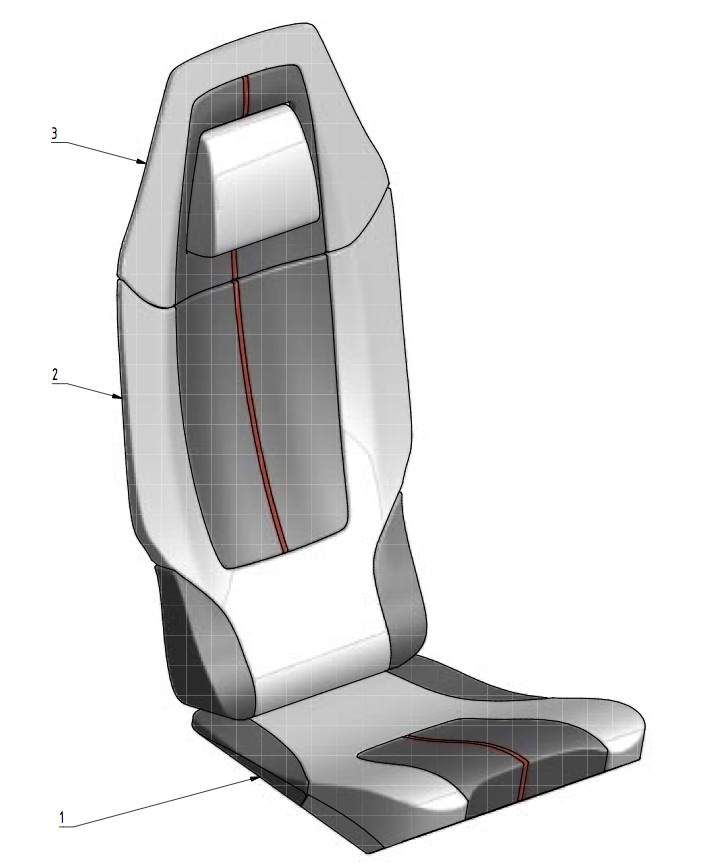
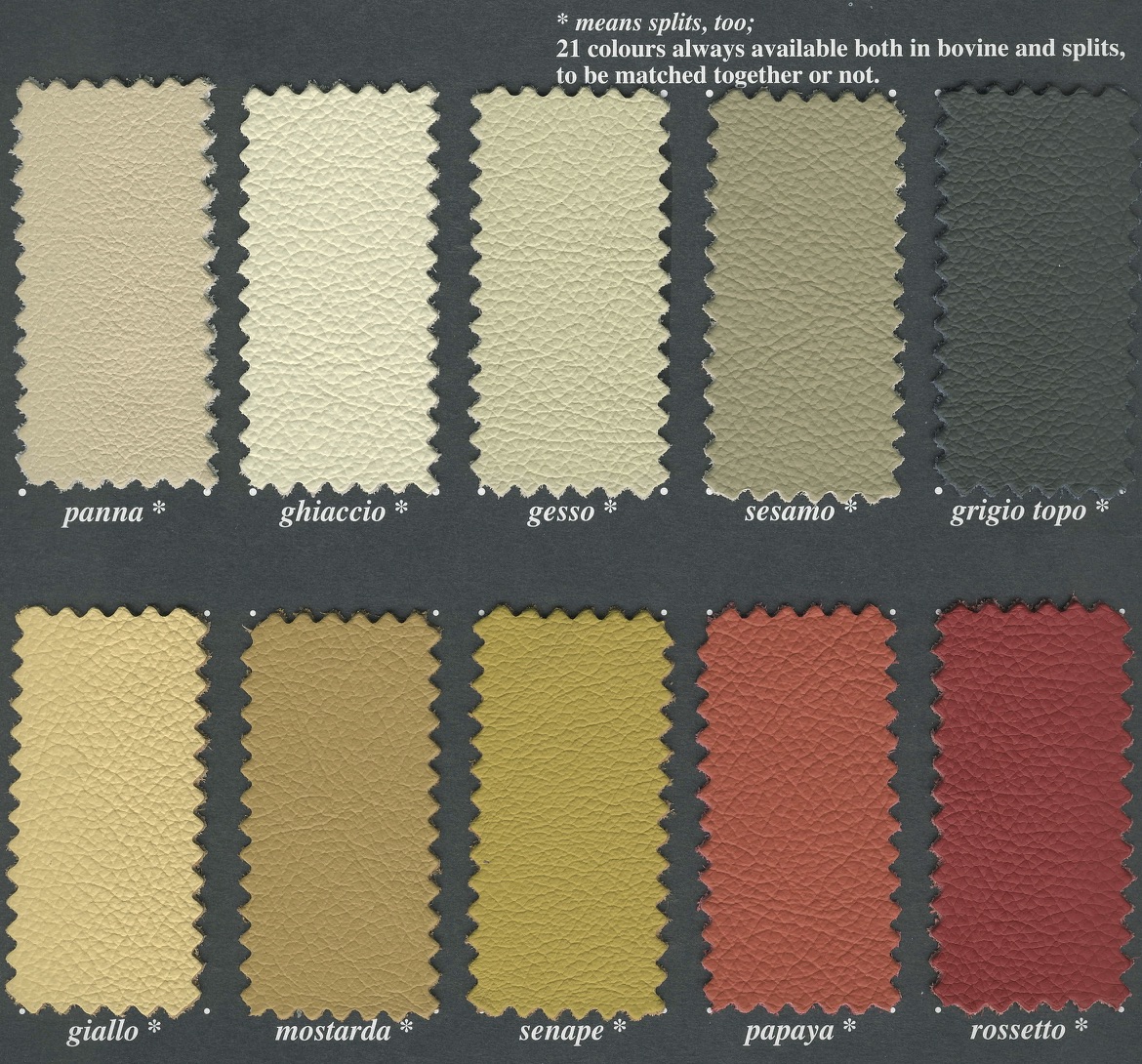
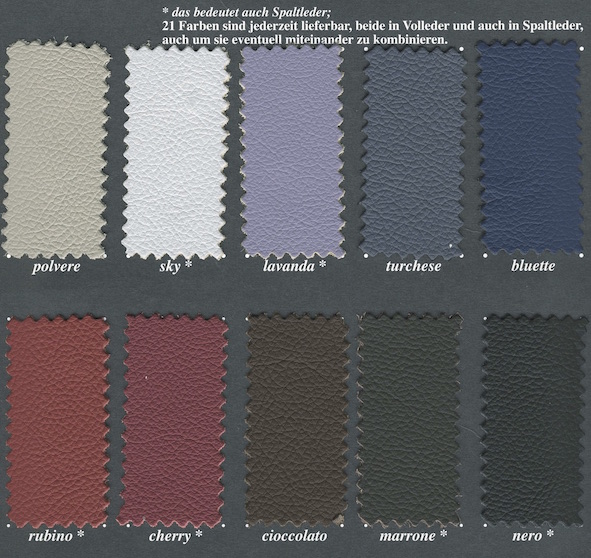
Dimensions
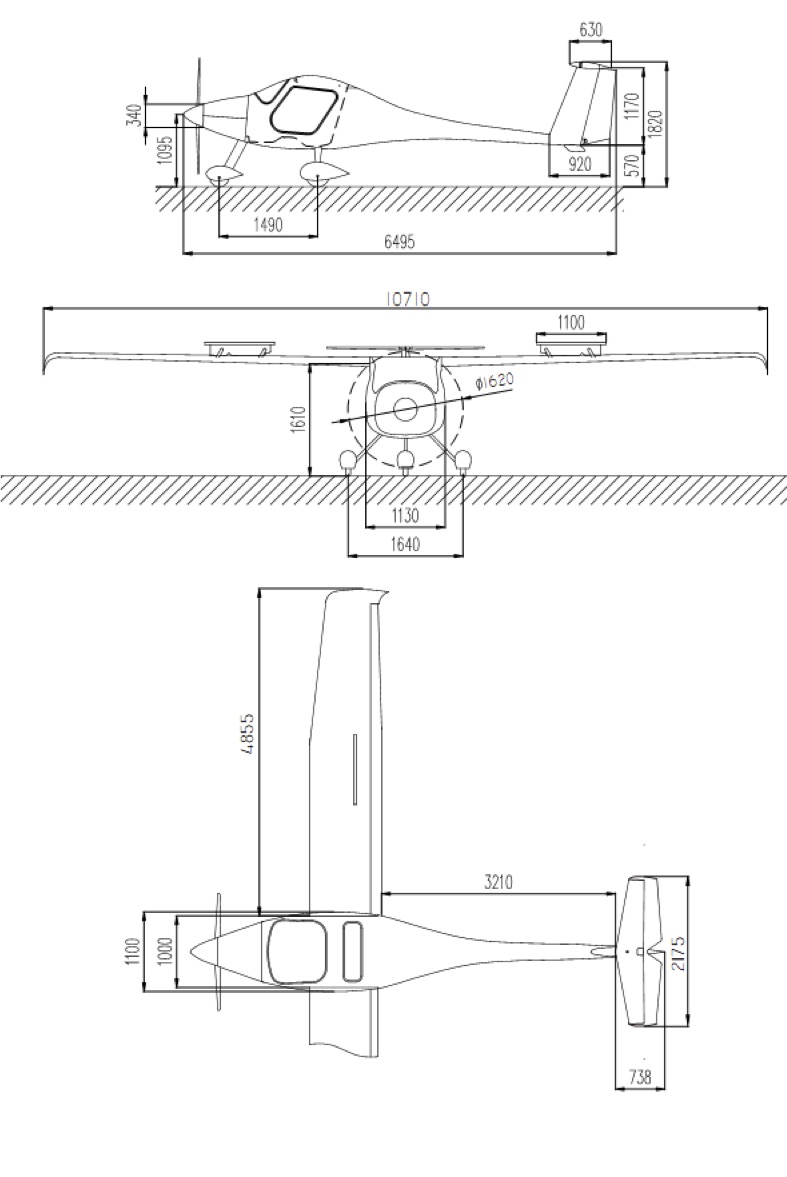
TECHNICAL DATA
|
Virus SW |
SW 80 (472.5kg) |
SW 100 (472.5kg) |
SW 100 (600kg) |
| ENGINE ROTAX | ROTAX 912 UL | ROTAX 912 ULS | ROTAX 912 ULS |
| max power | 80 hp at 5800 RPM | 100 hp at 5800 RPM | 100 hp at 5800 RPM |
| PROPELLER | Pipistrel VARIO | Variable pitch | Variable pitch |
| SIZES | |||
| wing span | 10,71 m | 10,71 m | 10,71 m |
| length | 6,5 m | 6,5 m | 6,5 m |
| height | 1,85 | 1,85 | 1,85 |
| wing area | 9,51 m2 | 9,51 m2 | 9,51 m2 |
| rudder area | 1,1 m2 | 1,1 m2 | 1,1 m2 |
| tail area | 1,08 m2 | 1,08 m2 | 1,08 m2 |
| aspect ratio | 11,3 | 11,3 | 11,3 |
| positive flaps | 9 deg, 19 deg | 9 deg, 19 deg | 9 deg, 19 deg |
| negative flaps | 5 deg | 5 deg | 5 deg |
| center of gravity | 25% - 37% | 25% - 37% | 25% - 37% |
| WEIGHTS | |||
| empty weigh | 287 kg | 289 kg | 289 kg |
| max take off weight (MTOW) | 472.5 kg | 472.5 kg | 600 kg |
| fuel tanks capacity | 2 x 50 l | 2 x 50 l | 2 x 50 l |
| useful fuel | 2 x 47 l | 2 x 47 l | 2 x 47 l |
| PERFORMANCES | DATA for TOM 472.5 kg | DATA for TOM 600 kg | |
| stall with flaps | 64 km/h | 64 km/h | 74 km/h |
| stall without flaps | 79 km/h | 79 km/h | 84 km/h |
| cruising speed (75% power) | 246 km/h | 273 km/h | 264 km/h |
| max. horizontal speed | 264 km/h | 283 km/h | 275 km/h |
| VNE | 302 km/h | 302 km/h | 302 km/h |
| max speed with airbrakes | 205 km/h | 205 km/h | 205 km/h |
| max speed with flaps | 130 km/h | 130 km/h | 130 km/h |
| turbulence penetration speed Vb | 250 km/h | 250 km/h | 250 km/h |
| best climb speed | 140 km/h | 140 km/h | 148 km/h |
| max climb rate | 6.1 m/sec | 8.4 m/sec | 6.6 m/sec |
| best glide ratio speed | 118 km/h | 118 km/h | 123 km/h |
| best glide | 1:17 | 1:15 | 1:15 |
| take off run | 140 m | 95 m | 140 m |
| take off over 15 m obstacle | 225 m | 175 m | 230 m |
| service ceiling | 6200 m | 6800 m | 5800 m |
| 45° - 45° roll time | 1,6 sec | 1,6 sec | 1.6 s |
| fuel consum. at cruis. speed | 13.6 l/hour | 17.8 l/hour | 18.0 l/hour |
| endurance | 6,9 hours | 5,3 hours | 5.3 h |
| range distance | 1650 km | 1450 km | 1415 km |
| max load factor permitted ( x 1,8) | +4g -2g | +4g -2g | +4g -2g |
| design safety factors & tested | minumum 1.875 | minumum 1.875 | minumum 1.875 |
Pipistrel reserves the right to revise the above data whenever occasioned by product improvement, government/authority regulations or other good cause. The design basis follow the strictest EASA CS-22, CS-VLA and CS-23 (sections), as well as rules applicable to ultralight/microlight aircraft (LTF-UL 2003, etc.) and ASTM-LSA standards.
Ultralight/Microlight certification basis varies from country to country, therefore the actual certificated data may be different from stated above. Please check the certifications link.
